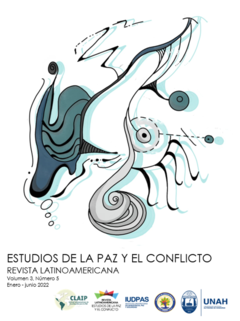Inhabiting in a foreign land: study on the living conditions of Venezuelan migrant women in Colombia
DOI:
https://doi.org/10.5377/rlpc.v3i5.12808Keywords:
venezuelan migrants, Covid-19, pandemic, Colombia, living conditions, migrant rights, xenophobia, social integrationAbstract
Venezuelan migration is perhaps the most important migration event in Latin America in the last decade. Millions of people left Venezuela, with Colombia as their main destination. This means a challenge for integration, where women have been those who have been in a more precarious condition. This research aims to determine how the living conditions of Venezuelan migrant women in Colombia have changed in the context of the pandemic. This work is based on a mixed methodology that uses data from the Gran Encuesta Integrada de Hogares, February and December 2020, and interviews with fourteen women in Bogotá, Medellín, Cali and Barranquilla. From this information, it is inferred that the Venezuelan migrant status and gender are factors that strongly condition access to employment and social rights, with women in an irregular migratory situation being the most affected. In addition, dependence on support networks, xenophobic events, and effects on mental health are key aspects to understanding the difficulties that migrants experience in the new normal.
Downloads
2173
HTLM (Español (España)) 879
XLM (Español (España)) 697
EPUB (Español (España)) 108
Downloads
Published
How to Cite
Issue
Section
License
Copyright (c) 2021 Revista Latinoamericana Estudios de la Paz y el Conflicto

This work is licensed under a Creative Commons Attribution 4.0 International License.
The journal's contents are published under a Creative Commons Attribution 4.0 license (CC BY 4.0). This license allows third parties to share (copy and redistribute the material in any medium or format) and adapt (remix, transform and create from the material for any purpose, including commercial), as long as the authorship and first publication in this journal (Revista Latinoamericana Estudios de la Paz y el Conflicto, Universidad Nacional Autónoma de Honduras - Consejo Latinoamericano de Investigación para la Paz, DOI of the work) is acknowledged, a link to the license is provided and it is indicated if changes have been made to the original. The terms of the license are available online at http://creativecommons.org.




